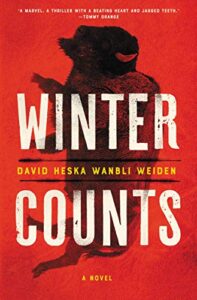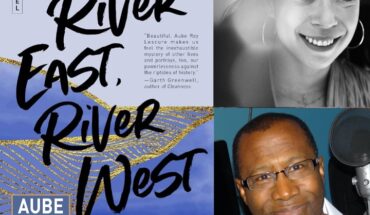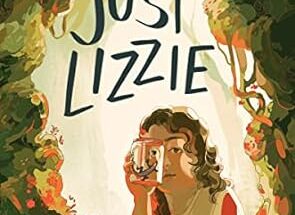 If you’re in the mood for what There There author Tommy Orange calls “a thriller with a beating heart and jagged teeth…a brilliant meditation on power and violence, and a testament to just how much a crime novel can achieve,” then get in line to read David Heska Wanbli Weiden’s Winter Counts, a literary thriller about Virgil Wounded Horse, a hired vigilante on the Sicangu Lakota’s Rosebud Reservation in South Dakota.
If you’re in the mood for what There There author Tommy Orange calls “a thriller with a beating heart and jagged teeth…a brilliant meditation on power and violence, and a testament to just how much a crime novel can achieve,” then get in line to read David Heska Wanbli Weiden’s Winter Counts, a literary thriller about Virgil Wounded Horse, a hired vigilante on the Sicangu Lakota’s Rosebud Reservation in South Dakota.
Winter Counts opens with Virgil Wounded Horse delivering some hard-knuckled justice to a creepy sexual predator who’s gone unprosecuted and unpunished. Virgil doesn’t love his job, but he doesn’t have the luxury of ambivalence—he’s providing his community a much-needed service while struggling to raise his orphaned teenage nephew, Nathan. But when Nathan gets involved in drugs, the stakes are raised for Virgil, who, along with his ex-girlfriend, Marie, must find out where the drugs are coming from and stop them.
Pamela Loring: David, thank you so much for taking the time to speak with me about Winter Counts. I couldn’t put it down but kept slamming on the brakes to reread lines like: “I saw some teeth lying on the concrete. They looked like little yellow tombstones.” Or “How was it that I could remember some shitty disco song from years ago but couldn’t remember my mother’s own words?” or “I wondered if I could ever really leave the reservation, because the rez was in my mind, a virtual rez, one that I was seemingly stuck with.” Or “Mount Rushmore had been carved out of the holy mountain previously known as Six Grandfathers as a giant screw-you to the Lakotas.” I could go on and on. It’s poetic, gritty, honest. And taut with suspense. How did you manage to do so much in one story, and is there some strand within that compelled you to write it?
David Heska Wanbli Weiden: Wow, thank you for the wonderful praise! A number of reviewers have noted that Winter Counts is somewhat unique, in that it’s a crime novel that borrows from literary fiction and also incorporates Native American themes and content. I worked to create a balance between plot, character, and theme, while also trying to incorporate some historical and political elements in the book. The reason I included the legal and political context is that Native peoples are embedded in a colonial system, of course, and there are so many outdated and unjust policies still in effect. Many, if not most, people are unaware of the scope of these laws, and that includes many Natives. Of course, I didn’t want the book to be a polemic, and so I always put the story and characters first.
PL: Clearly, your background as a lawyer informs this book with real authority. Of course, one can’t live in this country without knowing how screwed the Native Americans were by the invaders, and by administration after administration since. That legacy of injustice sure is alive and kicking. One such stranglehold is the Major Crimes Act. Can you talk a bit about the impact of that law and how it informs Winter Counts?
DHWW: The Major Crimes Act is just one of the problematic laws that affect Indian Country. The Major Crimes Act, passed in 1885, takes away the power of sovereign Native nations to prosecute most serious felony crimes that occur on their own lands. When a felony crime is committed by a Native person on reservation land, the tribal police must refer the case to the FBI and U.S. Attorney’s Office for prosecution in federal, not state or tribal, court. However, federal authorities are declining to prosecute a high percentage of these felony criminal cases, resulting in the release of the offenders back to the reservation. Because of this failure, victims and their families often hire private vigilantes to obtain some rough justice. That is, the family of an abused child might hire a vigilante to beat up the person who’d harmed their kid. Winter Counts is the story of one of these vigilantes: Virgil Wounded Horse. In the book, I explore these legal and political issues, but the novel is primarily a character-driven study of Virgil and his struggle to accept his Native identity.
PL: I feel like I learned so much in reading it. I had no idea, for instance, that the word “Sioux” means “little snakes” and was a spiteful nickname given to Lakota peoples by others. You deftly introduce readers to some of the history, resilience, and continuing struggles of Native Americans. How conscious an effort did you make to weave all this in, or was it simply elemental to the story’s unfolding?
DHWW: It was some of both. This is a novel about the Sicangu Lakota people, and so there were elements that needed to be included because they’re a part of life on the reservation. An example of this is wateca, which refers to the tradition of sharing leftovers after a feast. But, I decided early on that I wanted to bring in larger issues regarding the broken criminal justice system on reservations, the flawed juvenile justice process, health care, and food sovereignty. This may seem like a lot, and it was! I could only touch on some of these topics, as my paramount concern was maintaining narrative tension and suspense. I have published a couple of nonfiction essays on these issues (they’re listed at my website, davidweiden.com), and I hope to write more in the future.
PL: Virgil’s nephew, Nathan, is a gentle and quiet teenage boy. I sense you have a real soft spot for him, as he’s painted with such tenderness. But when he makes the mistake of experimenting with drugs, he becomes a pawn in a much larger crime. Without giving away anything, can you talk about how important it was to you to trace the source of corruption within and outside the community?
DHWW: I really loved writing Nathan’s character, and I was strongly influenced by my son, David, Jr. His love of rap music, his humor, teenage cynicism, and joyfulness were all a large part of Nathan’s character. Thankfully, David Jr. has not experimented with hard drugs, and for that subject I relied upon Sam Quinones’ excellent book, Dreamland. Sadly, drugs are present on the Rosebud Reservation, especially meth, just as they are in nearly every community in America. I abhor the effect the narcotics are having on Native youth, and so there’s a strong anti-drug message in the novel.
PL: Your main character, Virgil Wounded Horse, is of mixed heritage (his father was white, his mother Lakota), and his identity as ‘either/or’ has been a source of conflict and difficulty for him since childhood. When his estranged girlfriend, Marie, returns to help him with Nathan, she entreats him to participate in rituals, spiritual sustenance, and efforts to rebuild their society. But Virgil resists. Can you talk a little bit about Virgil’s identity and this cultural dissonance?
DHWW: Virgil is an iyeska, which is a Lakota slur that means “half breed.” Originally, the word meant “translator,” but it’s devolved into an insult over time. Because of the discrimination that Virgil endured as a kid, he rejected Lakota customs and traditions and decided that he’d rely only on himself, and not any larger belief system. His narrative arc involves his gradual acceptance of his Native identity and the realization that he must use Lakota spirituality to heal himself. He resists this change, but ultimately experiences a personal epiphany and transformation.
PL: As a member of the Sicangu Lakota, were you anxious about how your portrayal of your own community would be received?
DHWW: Yes, I felt some apprehension that readers and critics might focus on some of the criticisms in the book but gloss over the hopeful and upbeat sections about life on a reservation. I should note that the critiques in the book are all aimed at the oppressive laws that were enacted by the U.S. government long ago and not at Natives individually or as a community. When I wrote the book, I felt a real responsibility to portray my community honestly but positively. There are certainly problems and issues on the Rosebud Reservation in South Dakota (as exist everywhere), but I wanted to also show our people’s joy, humor, and determination. Happily, nearly all reviewers and readers appreciated my depiction of reservation life, and I’m grateful for this.
PL: Was there anything about writing the book that surprised you, or turned out completely differently than you’d planned?
DHWW: Yes, the character of Marie Short Bear was the one that changed the most. In early drafts of the novel, she wasn’t fully developed—a fact that was mentioned to me by beta readers. I took this critique to heart, and really worked to make her character come alive, with her own conflicts and contradictions. As I worked on those revisions, a subplot emerged—one that I hadn’t originally sketched out, but realized was necessary.
PL: Winter Counts is a New York Times Book Review Editors’ Choice, was named one of the Best Books of 2020 by Publishers Weekly, was nominated for Best Debut Novel and Best Mystery & Thriller in the 2020 Goodreads Choice Awards, was chosen as an Amazon Best Book of the Year and Editors’ Pick, is an Indie Next pick, and has received too many rave reviews to note. How does it feel to write your first novel, launch it during a pandemic, and have it received so resoundingly?
DHWW: I’m completely honored and grateful! The events of this year took everyone by surprise, and the pandemic was especially stressful for debut authors. Every single one of my scheduled events was canceled, which required a pretty quick pivot in terms of publicity and marketing. Ultimately, I believe the novel made its way into the hands of its intended readers, and I couldn’t be happier about that. I’ve received so many email messages, photos, videos, and even pieces of fan art, and all of these have touched my heart. But the ones that are most special to me are the emails from Native readers, who’ve told me that the book brought them closer to their own nation’s culture and traditions.
PL: Virgil’s sister, Sybil, dies before the book begins, but the impact of poor health care access on the reservation arises again in the book with another character. Unfortunately, covid-19 is making clear the very real and devastating results of inequity. Can you talk about your personal journey in exploring these issues via fiction?
DHWW: I grew up in Denver, Colorado, not the reservation, although I spent much time there growing up and still visit regularly. When you’re on the rez, it’s hard to miss the terrible health outcomes that Natives experience. One study showed that life expectancy for a man on the Pine Ridge reservation (right next to the Rosebud Reservation) is just 48 years. This is due to the often substandard health care we receive, the difficulties getting healthy and sustainable food, and the terrible economic conditions on many reservations. My own mother suffered from diabetes (which is rampant on many Native lands) and lost a leg and ultimately her life due to the disease. It’s hard not to get angry about these issues, especially when I read our tribal newspaper and see all of the obituaries for folks who’ve passed over to the spirit world too young. I hope that Winter Counts can raise awareness of some of these issues, and hopefully start a dialogue. I’m pleased to report that I’ve been contacted by some politicians, professors, and activists about these problems, and I’ve directed them to folks who know more about the issues than me.
PL: Who are the writers who’ve inspired and influenced you?
DHWW: Oh wow, so many! I’ve previously acknowledged the Native crime writers who came before me (even though some of these authors are not known as genre writers): Louis Owens, Stephen Graham Jones, Louise Erdrich, and Linda Hogan, to name just a few. I was also inspired by some of the greats in the crime fiction world: Jim Thompson, James Ellroy (whom I had the great fortune to meet a few years ago), Richard Price, Raymond Chandler, and David Goodis. I was also heavily influenced by the country-noir writers who have created such amazing books: Daniel Woodrell, Frank Bill, Donald Ray Pollock, my friend Benjamin Whitmer, and of course, Flannery O’Connor. And I can’t end this list without mentioning Larry McMurtry, whose masterful books I’ve devoured for decades.
PL: Do you have a writing group with whom you regularly share your work?
DHWW: No, I don’t, although I wish I did. I rely upon a few trusted readers who read early drafts and give me advice (which is sometimes painfully honest!) But, for any emerging writers who may be reading this interview, I strongly advise finding a supportive group and sharing your work with them. That is the best way to improve your work and build a network as well.
PL: What’s next for you? Will readers once again get to see Virgil, Marie and Nathan on the page?
DHWW: Yes, I’m thrilled to share that there will be a sequel, tentatively entitled Wounded Horse. All of the major characters from Winter Counts will return, along with some surprising new ones. And this is the appropriate place for me to give my sincere thanks to all who have supported this book: reviewers, journalists, bloggers, and most especially, the readers. Thank you all!
David Heska Wanbli Weiden, an enrolled citizen of the Sicangu Lakota nation, is author of the novel Winter Counts (Ecco, 2020). Winter Counts is a New York Times Book Review Editors’ Choice and was named one of the Best Books of 2020 by Publishers Weekly and Amazon. The novel was also chosen as Best of the Month by Apple Books, an Indie Next pick, and was a main selection of the Book of the Month Club. Weiden is also the author of the children’s book Spotted Tail (Reycraft, 2019), a biography of the great Lakota leader and winner of the 2020 Spur Award from the Western Writers of America. He’s professor of Native American studies at Metropolitan State University of Denver.
You can purchase Winter Counts at Bookshop.org, or your local bookstore.



